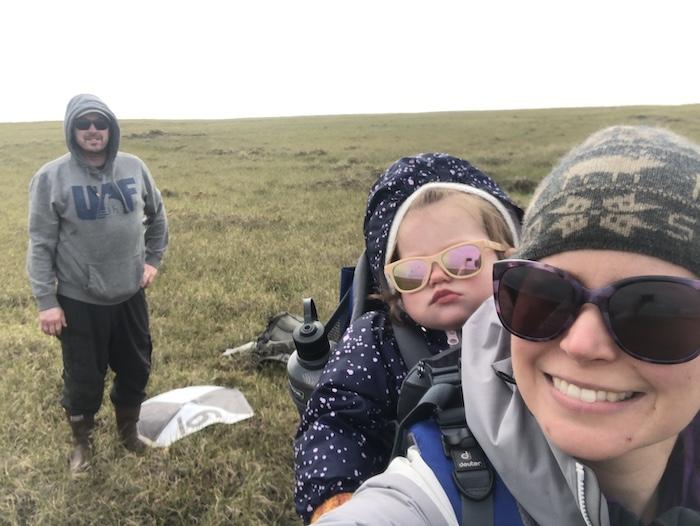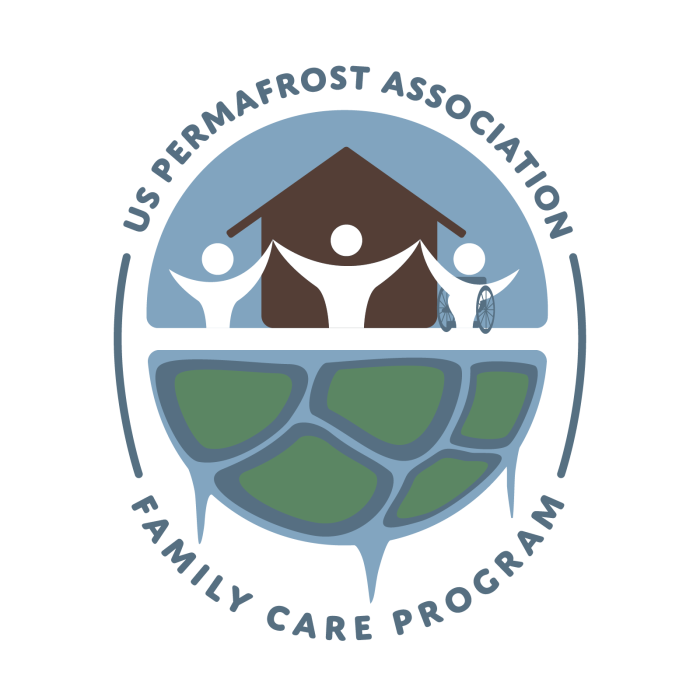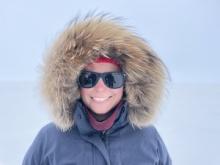by: Melissa Ward Jones, University of Alaska Fairbanks
Conducting research and work within permafrost science and engineering can be challenging. The nature of the work often occurs in remote places that create logistical challenges including remote access, communication, and limited amenities. This creates additional barriers and burdens for members of the permafrost community who have caregiving responsibilities. Caregivers must carefully plan their work life and need multiple layers of support to be able to juggle their work and family care responsibilities (Powell, 2014; Ward Jones and Bendixen, 2022). Logistic and financial support for childcare during larger professional conferences is increasing, but it is not available for other types of caregiving responsibilities. To our knowledge, support for fieldwork is even more limited for childcare and not available for other types of human care.

To recognize and support caregivers within the permafrost community, the US Permafrost Association (USPA) is launching the Family Care Program (FCP) that will provide resources, events (such as an upcoming panel discussion event on balancing childcare and work responsibilities in permafrost research), and funding to caregivers. The FCP will distribute four $500 awards annually through two funding cycles, with applications due approximately in April and October. These funds are open to USPA members doing permafrost-related work at any career stage and can be used to alleviate the burdens of additional expenses for caregivers to conduct travel-related work activities such as fieldwork and attending conferences. Funds can be used to support all human care (e.g., elder care and childcare) and examples for using funds include, but are not limited to, compensating professional or informal caregivers in the primary caregiver's absence, providing travel funds for an alternative caregiver to travel to the dependent's home, bring a dependent and/or an additional caregiver to a meeting or field site, and for costs related to shipping and/or storage of medicine or breast milk.

The FCP was established in cooperation with the USPA Diversity, Equity, and Inclusion Committee and is chaired by Melissa Ward Jones. This program is currently self-funded through donations and one micro-grant. Funding to support two awards for early career caregivers was provided by a Polar Science Early Career Community Office (PSECCO; NSF Award #2135176) BAJEDI micro-grant. We thank Arctic Foundations Inc. and an anonymous donor for their generous donations. This program has secured funding for two years; donations are accepted year-round through the USPA website. For more information on the FCP and applying for funds, please visit the USPA Family Care Program page. To ask questions or to get involved, please reach out to Melissa Ward Jones (mkwardjones [at] alaska.edu).
References
Powell, K. 2014. Work–Life Balance: Kid-Friendly Digs. Nature 513, 575–577. https://doi.org/10.1038/nj7519-575a
Ward Jones, M., and M. Bendixen. 2022. It's Time to Make Science in Remote Places Family Friendly. Nature 607. https://doi.org/10.1038/d41586-022-02048-5
About the Author
 Melissa Ward Jones is a Research Assistant Professor at the Institute of Northern Engineering at the University of Alaska Fairbanks. She is interested in the causes, consequences, and significance of geomorphic change within permafrost systems. She has conducted fieldwork on Axel Heiberg and Ellesmere Islands, Canada; Svalbard, Norway; and throughout Alaska, USA. She is an advocate for making science more family friendly and has been taking her daughter to do fieldwork since her daughter was two months old.
Melissa Ward Jones is a Research Assistant Professor at the Institute of Northern Engineering at the University of Alaska Fairbanks. She is interested in the causes, consequences, and significance of geomorphic change within permafrost systems. She has conducted fieldwork on Axel Heiberg and Ellesmere Islands, Canada; Svalbard, Norway; and throughout Alaska, USA. She is an advocate for making science more family friendly and has been taking her daughter to do fieldwork since her daughter was two months old.
